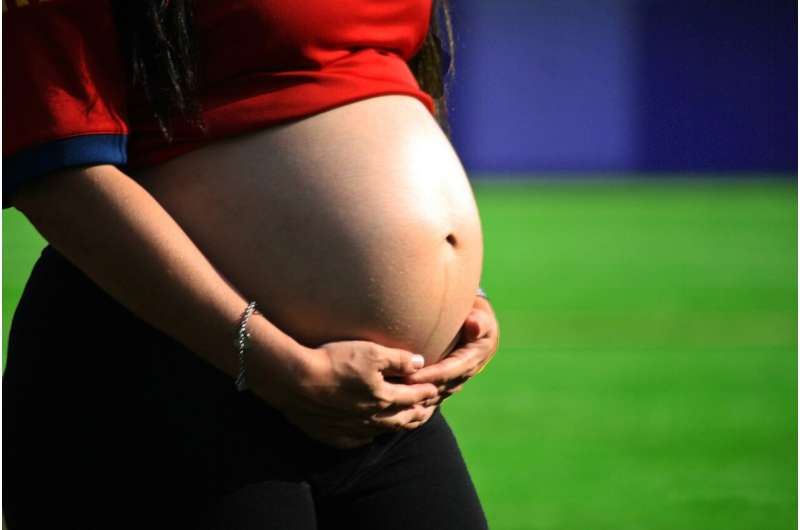Researchers find epigenetic changes during pregnancy may contribute to the development of asthma

Asthma is a chronic condition that affects 25 million people in the United States. Having a mother with asthma is an important risk factor and a new study may explain why. A team of researchers at the University of Chicago have found striking epigenetic differences in the airway cells of patients with asthma who have asthmatic mothers, compared to patients whose mothers never had asthma. The research was published on June 6 in Proceedings of the National Academy of Sciences.
Carole Ober, Ph.D., and her research team have spent years examining genetic influences that contribute to the development of asthma, including epigenetic factors. Epigenetics refers to changes in how genes are expressed that are not directed by changes or mutations in the DNA sequence itself. Instead, gene activity can be turned on or off by the attachment of small chemical structures such as methyl groups to DNA. Many environmental factors are known to impact DNA methylation patterns, including the in-utero environment.
In the study, the team found different DNA methylation patterns in epithelial cells of the lower airways of asthmatic adults with asthmatic mothers compared to those whose mothers did not have asthma.
“The methylation patterns in those with asthmatic mothers were tied to reduced expression of genes in immune-related pathways” said first author Kevin Magnaye, Ph.D., about the findings, which was part of his dissertation project.
These immune-related pathways are associated with impaired T cell signaling, a type of adaptive immune cell involved in fighting off infections, including pathways linked to impaired immune responses to viruses and bacteria. Clinically, there is a severe type of asthma, referred to as type 2-low asthma, that is defined by the lack of responsiveness to standard corticosteroid treatments, which suppresses inflammatory processes.
“This subtype of asthma is particularly difficult to treat,” said Ober, the Blum-Riese Distinguished Service Professor of Human Genetics. “Our results suggest that an underlying cause is due to impaired immune responses, potentially explaining lack of therapeutic response to corticosteroids and suggesting alternative pathways to target as therapies for this group of patients.”
One important element in this study is that it was conducted in a diverse population. Participants of the study were patients from the UChicago Medicine asthma clinics. Many live on the South Side, where asthma rates are especially high.
“Having representation of diverse ancestry and sociocultural factors is important in research, as it tells us these findings hold true across various populations,” said Magnaye. There are significant disparities in asthma rates, which further emphasizes the need for diversity in asthma research.
The study was conducted with cells taken from adult patients, but excitingly, the results were replicated in airway epithelial cells taken from an independent group of children. Researchers believe that the observed epigenetic modifications in the asthmatic patients likely occurred during pregnancy, and exposure to the asthmatic mother’s in-utero environment shaped their potential to develop asthma later in life.
“The fact that these results were replicated in a separate cohort of children supports the notion that these modifications are present long before adulthood,” said Ober.
More research is needed to determine the timeline of these changes and their effects on asthma. Ober’s team is working on a longitudinal study in infants to further examine these temporal effects.
Ongoing research in the Ober lab, in collaboration with Magnaye and his current research team at the University of California San Francisco, is focused on the potential interactions between the microbiome, epigenetics and the development of asthma.
Source: Read Full Article
